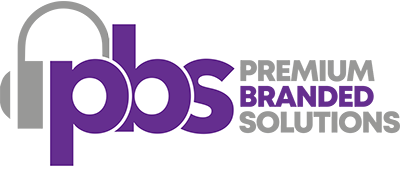Misinformation Surrounding Online Gambling: Canada’s Legal Practices
In recent years, online gambling has become a highly debated topic in Canada, yet misconceptions still prevail regarding its legal framework. Many Canadians are unsure about the legality of online betting, resulting in confusion and misinformation. This article aims to clarify the legal landscape of online gambling in Canada while addressing the common misconceptions that surround it, thereby empowering users to make informed decisions.
Understanding the Legal Framework of Online Gambling in Canada
The legal landscape of online gambling in Canada is complex, often leading to a plethora of misunderstandings. The primary legislation governing gambling is the Criminal Code of Canada, which delineates what forms of gambling are legal and illegal. While gambling is considered a provincial responsibility, the Code sets certain prohibitions, particularly against unregulated gambling operations. Consequently, online gambling falls under varying laws depending on the province.
For instance, provinces like British Columbia and Ontario have their own regulatory frameworks that allow online gambling through authorized platforms. On the contrary, some regions still hesitate to formalize their online gambling statutes, leading to further confusion among citizens. Moreover, international online gambling sites often operate in a legal grey area, causing even more uncertainty. Hence, understanding the jurisdictional nuances is essential for Canadian gamblers.
Common Misconceptions About Online Gambling Legality
Several misconceptions surround the legality of online gambling in Canada, leading to misinformation. Addressing these can clear the air and guide users in their online gambling decisions: gamble canada
- All Online Gambling is Illegal: Many Canadians believe that all forms of online gambling are illegal, which is not true. While unregulated sites are illegal, government-approved websites are perfectly lawful.
- International Sites are Safe: Users often think that playing on international gambling sites is as safe as local ones. However, these sites may not conform to Canadian laws and regulations, putting gamblers at risk.
- Gambling Winnings are Always Taxed: While gambling winnings can be taxable, this primarily applies to professional gamblers. Casual players usually don’t need to report their gains.
- Online Gambling Caused Increased Crime Rates: Some believe that online gambling contributes to a rise in crime. Research has shown no direct correlation between regulated online gambling and increased criminality.
- Underage Gambling is Rampant: Many perceive online platforms as easily accessible to minors. Most regulated sites have stringent age verification processes in place to mitigate this risk.
The Importance of Responsible Gambling Practices
With the rise of online gambling, the significance of responsible gambling practices cannot be overstated. The nature of the internet can lead to impulsive behavior, emphasizing the necessity for users to set limits and adhere to them. Provinces like Ontario have implemented guidelines to promote safe gaming, advising players on budget management, self-exclusion options, and recognizing warning signs of addiction.
Furthermore, reputable online casinos often incorporate features that allow players to set deposits and betting limits, ensuring they gamble responsibly. Understanding the distinction between entertainment and harmful behavior can keep the experience enjoyable and safe. Additionally, educational resources and support services are available to help individuals who may be struggling with gambling-related issues.
Future Directions For Online Gambling Legislation in Canada
As online gambling continues to grow in popularity, the Canadian government is poised to reassess and refine its legislative measures. With advancements in technology and changing societal attitudes towards gambling, there is a push for more uniform regulations across provinces. This effort will help eliminate confusion and create a safer online gaming environment.
Moreover, potential discussions regarding taxation models, consumer protection, and fostering responsible gambling initiatives are on the table. Transparent regulations can not only protect consumers but also allow the government to benefit from tax revenues generated through regulated gambling operations. Hence, as the online gambling sector evolves, so too must its legal frameworks to ensure it serves the Canadian public effectively.
Conclusion
Understanding the misinformation surrounding online gambling in Canada is crucial for informed participation in this growing industry. With a complex but navigable legal landscape, Canadian players should be aware of both the legal allowances and the potential risks associated with online gambling. As regulations evolve, stakeholders in the gambling sector must promote responsible practices and transparency, ensuring a safer and more enjoyable environment for all players.
FAQs
1. Is online gambling legal in Canada?
Yes, online gambling is legal in Canada if it is conducted on platforms regulated by provincial authorities.
2. Are international online gambling sites safe?
International sites may not be regulated by Canadian laws, making them riskier. It’s advisable to choose licensed local operators.
3. Do I have to pay taxes on my gambling winnings?
Casual players don’t typically need to report winnings, but professional gamblers may be subject to taxation.
4. What are the responsible gambling practices I should follow?
Set betting limits, recognize warning signs of gambling addiction, and make use of self-exclusion options if needed.
5. How is the Canadian government evolving its approach to online gambling?
The government is reassessing legal frameworks to promote uniformity, consumer protection, and responsible gambling initiatives as the sector grows.
